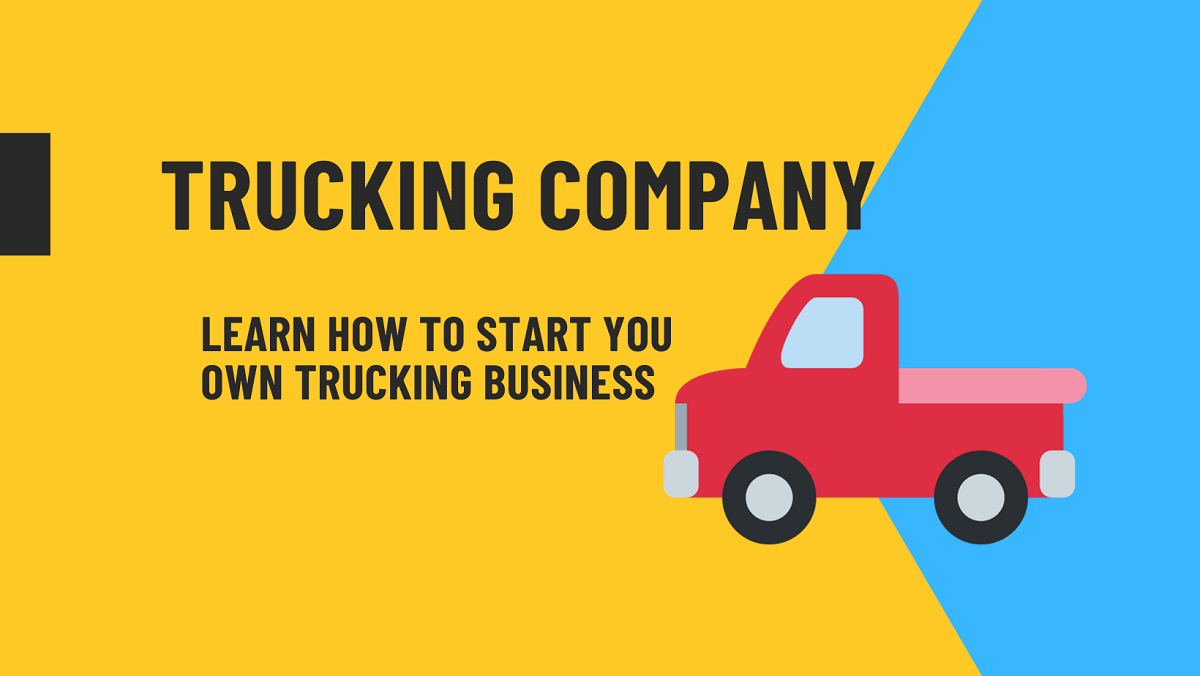Physical Address
304 North Cardinal St.
Dorchester Center, MA 02124
Physical Address
304 North Cardinal St.
Dorchester Center, MA 02124

Imagine yourself behind the wheel of a big rig, cruising along the open highway. As an entrepreneur, you can make this a reality by starting your own trucking company!
The trucking industry hauls over 70% of all freight in the U.S. and rakes in $700 billion in revenue annually. With the rise in e-commerce and manufacturing, the demand for trucking services keeps climbing. Now is a great time to launch your own transportation company.
But where do you start? How do you compete against the big guys? This guide breaks down the entire process into simple, actionable steps. Let’s hit the road!
Table of Contents
With over 1.2 million trucking companies in the U.S., simply getting a truck and driving loads is not enough. You need to find a specialty niche.
Study your local market and identify gaps that existing firms are not serving well. For example, Minnesota-based Wilson Logistics focuses on hauling locally-sourced lumber because of the huge forestry industry there.
Researching shippers in your area can reveal opportunities to provide niche services. If you live in Nebraska surrounded by farms, start by transporting agricultural goods.
Don’t just go by intuition alone – talk to industry insiders and crunch the numbers to validate your niche idea.
Leveraging your unique expertise or background is key. For instance, if you previously managed a construction company, you’re perfectly positioned to start a trucking firm specializing in hauling building materials.
After picking a niche, it’s time to map out your business goals and strategy in a formal plan:
Set Clear Objectives – Where do you want to be in 1 year? 5 years? Set specific fleet size and revenue milestones. This gives you targets to hit.
Calculate Startup Costs – Estimate expenses like:
Forecast Revenue – Research pricing in your niche and estimate monthly income based on number of trucks and projected loads/customers. Be conservative at first.
Describe Operations – Outline your core hauling workflow from load booking to delivery and invoicing. Detail roles and responsibilities.
Fundraise -Determine how much investment you need through loans, investors, grants. This capital fuels growth.
Having this detailed roadmap gets your business off to a smooth start. Adapt the plan as you encounter challenges and opportunities.
Your business structure has legal and tax implications:
Sole Proprietor – Simple but personally liable for debts.
Partnership – Shared ownership and resources. Draft a partnership agreement.
LLC – Provides liability protection while allowing pass-through taxes. Popular choice.
Corporation – More complex but enables easier investment and selling ownership shares.
Consult attorneys and accountants to determine the optimal structure from day one.
Before your wheels hit the pavement, ensure you have the proper permits in order:
Don’t start operating until you have these squared away. Steep fines apply for unlicensed trucking companies! Work with compliance experts to navigate the paperwork maze.
A new or used semi truck costs $100,000+ – a huge investment! Leasing trucks is an appealing option for newer businesses. You pay predictable monthly fees without taking on as much risk.
If purchasing trucks, inspect thoroughly prior to signing. Compare financing offers – shop around for the best rates.
Look for well-maintained, fuel-efficient models suited for your niche – refrigeration units, flatbeds, etc.
Buy essential extras like pallets, straps, ramps, dollies, fire extinguishers, and other safety gear. Don’t skimp on quality.
Finding and retaining drivers is tougher than ever amid today’s labor shortage. Make your company stand out:
Do thorough background checks, license verification, and drug testing on all new hires. Safety first!
Rigorous safety processes keep crews safe and protect your business reputation:
Take a proactive approach to compliance. Stay updated on regulatory changes so you don’t get fined for violations.
Marketing and sales efforts are essential for filling your trucks:
Over time, providing outstanding service will organically attract more customers through referrals and word-of-mouth.
Keeping real-time tabs on your books is vital for success:
Managing numbers vigilantly from the start prevents profit leaks.
Ok, I know that was A LOT of information all at once. Starting your own trucking company takes tons of preparation and persistence. But if trucking is your passion, you can absolutely make it happen. Take it one step at a time, learn as you go, and stay flexible when challenges pop up.
Your hard work will pay off big time in the long run.